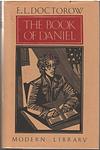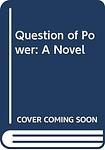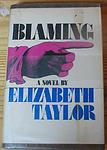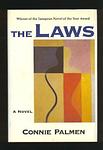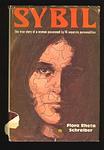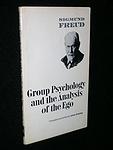The Greatest "Psychological, Health & Fitness" Books of All Time
Click to learn how this list is calculated.
This list represents a comprehensive and trusted collection of the greatest books. Developed through a specialized algorithm, it brings together 300 'best of' book lists to form a definitive guide to the world's most acclaimed books. For those interested in how these books are chosen, additional details can be found on the rankings page.
Genres
The Psychological genre of books typically explores the inner workings of the human mind and emotions, often delving into complex and sometimes disturbing psychological states. These books may focus on mental illness, trauma, relationships, or personal growth, and often challenge readers to confront their own beliefs and perceptions. Psychological books may be suspenseful, thought-provoking, and emotionally intense, offering readers a deep and often unsettling glimpse into the human psyche.
The "Health & Fitness" category encompasses a broad range of books aimed at helping readers achieve and maintain optimal physical and mental well-being. Titles within this genre offer insights into various aspects of health, including nutrition, exercise, weight management, and mental health strategies. From detailed guides on specific workout routines and dietary plans to holistic approaches for stress reduction and wellness, these books often provide practical advice, scientific research, and personal anecdotes to motivate and educate individuals seeking to improve their health. Whether you're a fitness enthusiast looking for advanced training techniques, someone starting a journey toward a healthier lifestyle, or a professional seeking the latest in health-related research, the "Health & Fitness" category offers resources to support a wide array of health goals and interests.
Countries
Date Range
Reading Statistics
Click the button below to see how many of these books you've read!
Download
If you're interested in downloading this list as a CSV file for use in a spreadsheet application, you can easily do so by clicking the button below. Please note that to ensure a manageable file size and faster download, the CSV will include details for only the first 500 books.
Download-
1. Man's Search for Meaning by Victor Frankl
This book is a memoir written by a psychiatrist who survived the Nazi concentration camps during World War II. The author shares his experiences in the camps and his psychological approach to surviving and finding meaning amidst extreme suffering. He introduces his theory of logotherapy, which suggests that life's primary motivational force is the search for meaning, and argues that even in the most absurd, painful, and dehumanized situation, life can be given meaning.
-
2. The Book of Daniel by E. L. Doctorow
"The Book of Daniel" is a semi-fictional novel that explores the lives of the Isaacson family, specifically focusing on the children, Daniel and Susan, after their parents, accused of being Communists, are executed. The narrative is a combination of historical fiction and a political commentary, providing a deep exploration of the Red Scare in the United States during the Cold War era. The novel is a critical examination of social, political, and familial dynamics in a time of national fear and paranoia.
-
3. A Question of Power by Bessie Head
"A Question of Power" explores the life of Elizabeth, a mixed-race South African woman who moves to a village in Botswana to escape the apartheid regime of her home country. The novel delves into her struggle with mental illness, as she experiences vivid, often terrifying hallucinations. These episodes are deeply symbolic, reflecting her internal battles with power, gender, race, and colonialism. The narrative provides a profound examination of the human psyche and the impact of social and political oppression on mental health.
-
4. Civilization and Its Discontents by Sigmund Freud
This book is a seminal work in the field of psychology, exploring the inherent tension between civilization and the individual. The author, a famed psychologist, argues that civilization's imposition of societal norms and restrictions leads to individual unhappiness and discontent. He delves into the conflict between the human desire for freedom and society's need for order, suggesting that this tension is at the root of much human suffering. The book further explores concepts such as the super-ego, guilt, and the death drive, offering profound insights into the human psyche.
-
5. Three Essays on the Theory of Sexuality by Sigmund Freud
This book is a seminal work that presents the author's theories on human sexuality, including his concept of sexual development through psychosexual stages. It explores topics such as the sexual aberrations, infantile sexuality, and the transformation of puberty. The author argues that sexual drive is present from birth, and that children go through several stages of sexual development. He also discusses the idea of sexual perversions and their origins. This book is considered a foundational text in the field of psychoanalysis.
-
6. The Uses of Enchantment by Bruno Bettelheim
"The Uses of Enchantment" is a psychological analysis of fairy tales and their importance in childhood development. The book argues that these stories allow children to navigate their emotions and understand aspects of life they are yet to experience. By exploring various themes, such as separation anxiety, oedipal conflict, and sibling rivalry, through well-known fairy tales, the author demonstrates how these narratives contribute to a child's moral education and understanding of the human nature.
-
7. Down There by J. K. Huysmans
"Down There" is a novel that follows the life of a Parisian novelist who is disillusioned with his mundane life and seeks solace in the occult. His journey leads him to a satanic priest who introduces him to the dark world of satanism. The protagonist becomes deeply involved in this world, experiencing hallucinations and disturbing visions. The book is a deeply psychological exploration of the human fascination with evil and the macabre, set against the backdrop of late 19th-century Parisian society.
-
8. Thinking, Fast and Slow by Daniel Kahneman
The book delves into the two systems that drive the way we think—System 1, which is fast and intuitive, and System 2, which is slow and deliberate. The author, a Nobel laureate, explores how these systems shape our judgments and decision-making. He presents several groundbreaking experiments that have shaped our understanding of human thought, revealing where we can trust our intuitions and how we can tap into the benefits of slow thinking. The book also discusses how our cognitive biases often lead to errors in judgment and affect our decision-making processes.
-
9. Blaming by Elizabeth Taylor
"Blaming" is a poignant story about a woman named Amy who, after the sudden death of her husband during a holiday, finds herself befriended by an American woman named Martha. Despite their differences, Martha provides Amy with comfort and support, but Amy finds it difficult to accept this kindness due to her reserved and private nature. The novel explores themes of grief, friendship, and the complexities of human relationships, as well as the guilt and blame individuals often place on themselves in times of hardship.
-
10. The Laws by Connie Palmen
"The Laws" is a philosophical novel that follows the life of a young woman studying philosophy who becomes intrigued by the concept of laws, both societal and personal. Over the course of seven years, she engages in relationships with seven different men, each representing a different aspect of her studies including a priest, a physicist, an artist, a psychiatrist, a lawyer, a biologist, and a writer. Each relationship provides a new perspective on her quest to understand the laws of the universe and human nature.
-
11. Sybil by Flora Rheta Schreiber
The book is a true story about a woman who, after suffering severe physical and emotional abuse as a child, developed sixteen different personalities as a coping mechanism. The narrative follows her journey with her psychiatrist as they attempt to fuse her multiple identities into one through therapy and treatment. The book offers an in-depth look at Dissociative Identity Disorder, its causes, manifestations, and treatment.
-
12. Group Psychology and the Analysis of the Ego by Sigmund Freud
This book delves into the exploration of group dynamics and mass psychology. The author, a renowned psychologist, theorizes about the nature of groups, how they form, and how individuals within them behave. He also explores the concept of the 'ego' and its role within these group dynamics. The book provides a comprehensive analysis of group psychology, focusing on aspects such as leadership, suggestion and contagion, and the relationship between individual and group mind. It's a significant contribution to the understanding of mass movements and crowd behavior.
Reading Statistics
Click the button below to see how many of these books you've read!
Download
If you're interested in downloading this list as a CSV file for use in a spreadsheet application, you can easily do so by clicking the button below. Please note that to ensure a manageable file size and faster download, the CSV will include details for only the first 500 books.
Download
